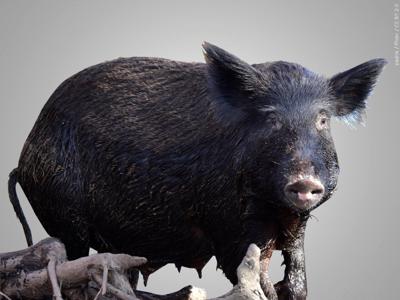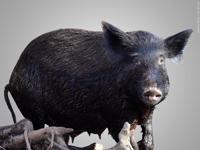DOVER, Del. - There has been a significant increase in pigs running freely in residential and state lands throughout Delaware since 2016.
Potbellied pigs begin life as cute "mini pigs" or "teacup pigs," but quickly grow to weigh up to 200 pounds and can live up to 15-20 years. These pets can break free from pens or are let go by owners who can no longer manage them, according to the Department of Agriculture.
"Rooting in the grass," State Veterinarian Dr. Karen Lopez said. "They're gardens that they worked really hard on because you can imagine if these pigs have just been kind of discarded on the streets. They are probably going without food. So they're looking for food sources."
These previous pets are a non-native species and can breed at a very young age, starting at three months for females. To prevent a feral pig population from being established and to mitigate any threats that they may pose to Delaware lands, livestock, natural resources, and human health, pigs found roaming on state-owned lands will be killed.
Pet owners are encouraged to fit their pigs with an ear tag so they can be returned if found. It is also recommended to spay or neuter pet pigs to prevent unintended litters. Doing so can also help to decrease aggression and the desire to roam in males. Potbellied pigs can live indoors or outdoors and will require a secure pen where they can not escape.
If you are a potbellied pig owner and need guidance on securing and housing your animal, spaying or neutering, or animal identification, contact the Delaware Department of Agriculture’s Poultry and Animal Health Section at 302-698-4561.






